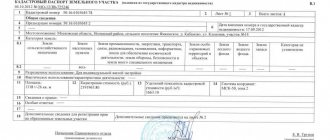Types of land use rights
The right to use a land plot (without division into any types) is enshrined in Article 271 of the Civil Code of the Russian Federation. According to the norm of this article, the right of use should be understood as the right to use this or that land plot for necessary purposes, but without violating the current legislation.
The right to use land is notified in detail in the Land Code of the Russian Federation. Despite the fact that this concept is not explained there, the main types of such rights are listed in Chapter 4 of this normative act.
These types will include:
- Rent of land. This is one of the most common rights of use, when the tenant regularly pays a certain fee to the owner of the land for the operation of the site (regardless of whether the state acts as a lessor or a private person, individual or legal entity).
- Permanent perpetual use in terms of prevalence ranks second among the rights to use land plots in modern Russia. This right is characterized by the provision of land for use in its own interests exclusively by the state from its funds . A plot of land can be provided for absolutely any purpose that does not contradict the law. The maximum period of use is forty-nine years, however, within a year from the date of concluding the use agreement, you can register the property as a property subject to the conditions of using it for its intended purpose.
- Free immediate use. This type of land use right is not so widespread, but the number of those persons who enter into such use agreements is still quite large. The period for which the contract is concluded can be from one year, and the land can be provided by either the state or an individual or legal entity.
- The right of lifelong inheritable use. Currently, such a right of use is no longer granted (it was widespread in the Soviet years and acted as the only possible right of use), however, when transferring land plots, such a right still arises, but requires mandatory re-registration of ownership.
- The right to limited use of a land plot or easement is the right to use someone else’s land plot. This right is established if, for some reason, the full use of the neighboring plot is impossible without imposing a corresponding burden on the plot that is in a more privileged position. An easement can be established by agreement between the owners of the plots, as well as with government intervention. The time for its establishment is also calculated based on the conditions of the need for exploitation, and can be limited (such an easement is called urgent) or unlimited (permanent or perpetual easement).
The listed types of land use rights are the main ones that are currently applied in accordance with current legislation. However, the law does not exclude the possibility of the emergence of other forms of use rights, taking into account that this is only possible if changes are made to existing regulations.
Registration process
Now any right to use land is certified by entering the relevant data into Rosreestr. The basis for filing an application with this body is to obtain any rights to land, including an easement or lease. The basic design scheme looks like this:
- Submitting an application to Rosreestr. Now this can be done remotely through the State Services portal (but an electronic signature will be required). Only the owner or a person who claims to receive rights may submit an application.
- Payment of state duty.
- Sending a package of documents confirming receipt of the right to use (you must also add an ID card).
- Providing an extract from the cadastral plan (if land surveying has not been carried out previously).
- Providing documents for alienation (on the part of the person from whom the land is being alienated). Typically this is a certificate of ownership.
More on the topic: What is an urban planning plan for a land plot
Subjects of the right of use: what rights and responsibilities do they have?
As in any other right, in the right to use land there are objects of use and subjects. Objects are those land plots in respect of which such use is carried out. Individuals and legal entities, as well as the state, should be considered as subjects, since they are the ones who carry out certain actions to use existing lands.
Subjects of the right of use have their own rights and obligations in relation to each other and to the object in relation to which such use is carried out.
The right to use a land plot consists of the possibility (the rights of subjects):
- The emergence of ownership rights to all cultivated plants and their seeds growing in a specific area, regardless of whether they were planted by a given user or another person;
- Independent implementation of all economic activities on the site provided for use;
- Use in a manner that does not contradict the current legislation of the mineral resources discovered on the site, as well as the water and forest areas located on its territory;
- Construction of various buildings for domestic, economic, socio-cultural or industrial purposes, if such use does not contradict the intended purpose of a particular site;
- Creation of new water bodies, implementation of a set of reclamation measures aimed at improving the condition of lands located on the territory of a particular site;
- Receiving compensation for costs invested in bringing it into proper agricultural condition, including increasing the fertility of land in a given area.
The listed list of rights is not exhaustive and can be changed or supplemented by the terms of the agreement on the right to use a specific site.
As for the responsibilities of subjects of land legal relations, such responsibilities will include:
- Maintaining the land plot and the soils on it in proper condition, including carrying out all necessary measures aimed at preserving and increasing the fertility of the soil cover in a particular area;
- Use of this site only in accordance with its intended purpose, including the implementation of only permitted construction on this site;
- Construction of buildings and various structures exclusively in compliance with the necessary sanitary and construction standards, which will minimize the damage that may be caused to the site by such activities;
- Ensure free passage and travel to neighboring areas, as well as unimpeded access to forest and water bodies located in the location area, if such provision falls under the responsibility of the user of the area;
- Pay a fee for the use of the site in a timely manner, if such a fee is provided for in the use agreement;
- Provide all necessary information about the operation of the land plot to the authorities of the subject of the federation or municipal government, if such actions are approved by the provisions of the agreement, as well as report information about any violations of the condition of the site, regardless of whose fault such violation occurred.
The list of these responsibilities is formed on the basis of law enforcement practice related to land use rights. However, this list is not exhaustive and in each specific case of drawing up a use agreement it can be expanded by adding any other obligations on the part of the user of the site.
Temporary use of memory
The Land Code also provides for the right to temporary use of a land plot. But we are not talking about obtaining rights on the basis of a lease agreement. Temporary possession of plots can be received by:
- Only state or municipal authorities, if the original owner of the land is the state itself.
- Legal entities, but only if the owner is another legal entity or individual. In this case, the land is provided for temporary use only for business activities.
Plots for temporary use are transferred only for a period of up to 3 years, but if we are talking about the provision of land that is in common shared ownership (that is, one of the owners receives the right to use the entire plot), then the period of use is determined by the parties to the agreement themselves.
If you use the site for more than 15 years...
Then you can attempt to register ownership of this plot. This right for the user is secured in Article 234 of the Civil Code of the Russian Federation.
According to the provisions of this article, if an individual or legal entity for a long time conscientiously fulfills its obligations to use real estate (for example, a land plot), then if such property does not have owners among private individuals (the plot belongs to the state), it can submit documents to determine the ownership of this plot behind him.
However, the same article contains a rule according to which it is possible to register ownership of a plot of land using such a basis as acquisitive prescription only on the basis of filing a claim in court for recognition of ownership rights.
A statement of claim for recognition of ownership rights on such a condition will have a number of features, which consist in the execution of such a statement and in the identification of the parties participating in the process:
- If we talk about the parties participating in the process, then the plaintiff will be the user of a specific land plot, and the defendant can only be determined if the plot in question was previously owned. If it belonged to the state, then there will be no defendant as such, since there will be no subject of the dispute either.
- When filing a claim on the basis of recognition of property rights, the difference will be contained in the possible absence of the defendant (that is, an indication of him may be completely absent in the text of the application). In addition, the text of the document, if there is a dispute, must contain requirements for resolving such a dispute. In the event that there is no subject of dispute, the plaintiff makes only one demand - for recognition of his ownership of the land plot in question.
As judicial practice shows, in most cases such claims are satisfied due to the absence of any disputes regarding them.
Registration of rights
It is regulated by Federal Law No. 122, according to which lifelong ownership belongs to the group of real rights. Therefore, it is subject to registration in the Unified Real Estate Register (USRE).
If the right of ownership appeared before the entry into force of the specified normative act, then relaxation is allowed. In such a situation, the unregistered life tenure has legal force.
Documentation
To register the right to lifelong ownership of a plot, you must provide a number of documents to the MFC:
- passport or other identification documents;
- certificates confirming the ownership rights of the deceased person, for example, a decision of the authorized bodies to issue a plot;
- certificate of inheritance;
- certificate of payment of state duty.
In exceptional cases, additional documents will be required; the exact list will be specified in the LSG.
Algorithm of actions
When registering a right, there are several stages:
- collection of necessary papers;
- payment of state duty (2 thousand rubles);
- with the prepared documents you need to contact the MFC or the Rosreestr department;
- The last stage is obtaining land ownership rights.
When the fact of provision of a plot is not recorded in the Unified State Register, the applicant first registers the primary right, then the moment of transfer of ownership.
If the information is included in the register, then the person only needs to submit one inheritance certificate to the MFC. Then registration consists of one step.
Features of obtaining the right to use land by court decision
The most common cases of recognition of the right to use land by a court decision should be considered the following cases:
- Refusal to provide a land plot for lease on the basis of the right of pre-emption to enter into an agreement;
- Refusal to provide a plot of land for urgent free use despite the presence of grounds approved by law;
- Failure to provide the opportunity to conclude an easement agreement on a land plot in order to ensure the normal functioning of the plot that is in a worse territorial location.
If one of the listed conditions has been recorded, it is necessary to go to court to resolve the dispute.
Registration of the right of use in the event of a positive decision by the court on the dispute that has arisen will be carried out on the basis of a court decision that has entered into force. This procedure will begin no earlier than the day following the day the judicial act entered into legal force (that is, on the eleventh day from the date of such a decision, if it has not been appealed).
As for the registration of the arisen right, when it is carried out, a copy of the court decision, certified by a notary, must be included in the list of main documents that are provided to obtain a certificate confirming the legality of the arisen right.
In addition, a copy of the court decision with a note about its entry into legal force must be attached to the text of the agreement on the right to use the land, and the text of the agreement itself must contain a link to such an application.
All actions to obtain the right to use land can be carried out only after the court decision has entered into legal force. This means that filing claims for allotment of land to the plaintiff earlier than this period will be unfounded.
The history of the establishment of the institution of lifelong land ownership
The opportunity to receive land as an inherited property arose in the domestic system in the 90s and quickly became the main type of property ownership. Most citizens used the plots on the basis of the right of lifelong inheritable property.
Ancient Roman jurists were the first to create the concept; it was called “emphyteusis.” Then the development was adopted by other legal systems and included in legislation.
The position of lifelong ownership was not used in pre-revolutionary times, just as in Soviet times. There is a theory about the artificial introduction of emphyteusis into the Russian legal system. This happened during the transition phase. The legislative body considered that the Russian people were not ready for the institution of private property. Therefore, we created something in between.
For the first time, the right to lifelong ownership is indicated in the Fundamentals of Legislation of the USSR. It was planned that property would be issued in a similar way for:
- subsidiary farming;
- operation of mansions;
- peasant farming;
- traditional craft.
Further, the Land Code provided similar grounds and principles for lifelong ownership. By presidential decree of 1993, such real rights to land were abolished.
In most legal acts, the concept of lifelong ownership continued to exist. Therefore, there was a need to resolve the issue of the legal regime of land obtained from public property.
In 1995, Part I of the Civil Code came into force and is still in force today. Now lifelong ownership belonged to the group of real rights, in which the size of the user’s capabilities is significantly less than that of the owner (Article 216 of the Civil Code of the Russian Federation).
Chapter 17 of the modern Civil Code, which regulated the issue, was declared for a long period, since it had no legal force, and was not approved. The Presidential Decree abolished the heads of the old Land Code of the RSFSR, and the new code was published only in 2001.
Modern legislation regulates the issue of property rights ch. 21 of the Land Code of the Russian Federation, which contains the following norms:
- it is not allowed to grant public territory for lifelong ownership after the publication of the new Code;
- the right to land that arose before the adoption of the modern Land Code does not lose legal force;
- the owner of the plot sells it only by inheritance, that is, it is prohibited to sell or give it away.
In 2015 Art. 21 were removed from the text of the Land Code. References to life ownership have been removed from the content.
The right to own public property will cease to exist, and former rights holders will become owners or tenants.
Features of the use of lands of various categories
Each land plot classified as one category or another has its own legal regime for the use of land, which should not contradict current legislation.
If we talk about lands located in urban settlements, then the following nuances should be indicated:
- Strict compliance of all activities carried out on the land plot with the city master plan (if we are talking about construction);
- Preventing violation of environmental and sanitary-epidemiological standards during the operation of the land plot;
- Coordination of ongoing activities for the economic feasibility of developing the city budget (if we are talking, among other things, about commercial activities on the territory of the site);
- Mandatory availability of documents confirming the intended actual use of the land plot (for example, if it is allocated for individual housing construction (IHC), then only such construction should be carried out on it).
In addition, each municipality has its own requirements for the use of land plots provided for use:
- If we are talking about specific lands that are allocated, for example, for running personal subsidiary plots, then the main requirement for them will be strict adherence to their intended purpose.
- When considering the use of land allocated for the creation of a peasant farm, it is necessary to comply with the requirement associated with the use of the site for its intended purpose. This means that all actions that are carried out on a specific site must be aimed at creating such a farm or organizing agricultural production.
- When allocating land for use, the purpose of which is to carry out individual housing construction, on such lands it is prohibited for the purposes of their use to build houses with more than three storeys, in which more than one family can live.
- If we are talking about a plot of land allocated for running a personal subsidiary plot, then such a plot can only be used for one’s own personal purposes. Its transfer for rent or sublease is prohibited by the terms of the contract. In addition, organizing another form of farming in this case will be considered illegal.
Termination of the right of inheritance
Art. is established. 63 Land Code of the Russian Federation. To renounce land, it is enough to submit an appropriate application to the MFC or Rosreestr. The application does not have a special form and is filled out in any form. Additionally, a photocopy of the passport is attached.
Land is forcibly confiscated if the law is violated. For example, the site was not used for its intended purpose, or the agricultural area was rendered unusable for the purpose of growing crops.
The state has the right to seize land, even if the owner did not violate the established rules. They take the land legally if the land is needed for the needs of the state (Article 279 of the Civil Code of the Russian Federation). For example, it is necessary to build a water supply system, social facilities, expand the territory of the reserve, place a highway, a gas pipeline, and more.
Land being taken:
- c compensation for losses;
- on a voluntary basis;
- the owner is not to blame for the seizure that is taking place.
If a citizen persists and does not want to sign an agreement with local self-government or government authorities, then they have the right to file a claim in court. Then the procedure for withdrawal, the method and possibility of compensation payment, its amount are established by the authorized body.
Arbitrage practice
Having analyzed the judicial practice, we can conclude that there are often claims when the applicant wants to cancel the contract of sale of a house located on a plot of lifelong ownership, justifying his claims by the impossibility of disposing of the property in this way.
After all, according to the law, it is impossible to sell property that is in lifelong ownership. But the applicant is mistaken; the rule applies exclusively to the site. Structures erected on the territory are permitted to be sold. This is confirmed in practice.
In the city of Sochi, a citizen filed a lawsuit in the Khostinsky District Court with the aim of invalidating the purchase and sale agreement of a private house, which is located on his plot, transferred to him for lifelong use. The court, relying on the rules of law, refused.









